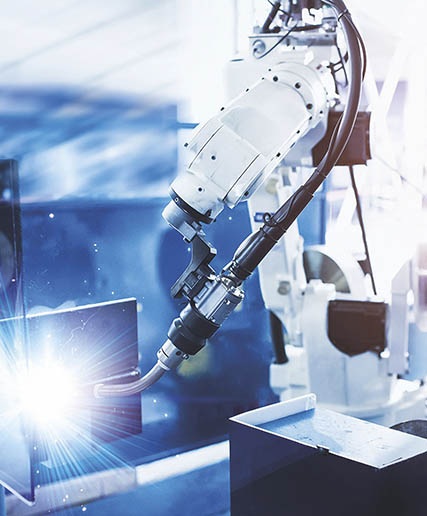Open application



Our society is undergoing a vital transformation, with technology the key driving factor and industry at the forefront. For companies, it is a challenging and sometimes confusing time. Industrial issues are become increasingly complex. For engineering company VIRO, it’s one of the reasons to start using System Engineering.
System Engineering takes an integrated approach to technical development projects. An open approach focused on what something such as a machine needs to do. Precisely how that machine should do that is not known in advance. Jacob Vlasma is the branch manager in Hengelo. ‘Clients don’t generally come to use with a specific assignment, but a speck on the horizon. In that case, we can sit down and establish the specifications and develop a concept together. With the guidance of a systems architect, we translate the client’s issue into a functional overview – which functions do we need in order to meet the specifications?’ The VIRO systems architect will look at the full range of (possible) relevant fields of work. ‘Systems thinking differs considerably from conventional mono-discipline design work, where an issue is approached exclusively from a single field of work, perhaps mechanics. When creating a system design, you bring all of the fields of work to the table. Led by the systems architect, the team maps a) the input from and b) the interaction between the different sub-systems. This synergy helps you to arrive at solutions that would otherwise remain unearthed with traditional design thinking.’
More data for Industry 4.0
Theo de Vries is head of the Software & Control department at VIRO, the department that currently accommodates the majority of systems engineers. He provides an example. ‘In the past, the LP and turntable were the foremost way of playing music. It was a mechanical solution that relied on the even running of the turntable to produce high-quality sound. With CD players, the situation is different: the sound doesn't come straight from the groove – there's a digital buffer between the CD and the receiver of the sound. The software in the CD player empties the buffer evenly. This system has allowed the mechanical specifications to be reduced. Consequently, you have a better quality of music at lower cost for the playback device. That would never have been possible if people had continued to look to mechanics for a solution.’ Breaking free from technical fields. Looking at an issue holistically – an important attribute and the ultimate added value of System Engineering. Theo de Vries explains: ‘In Mechanical Engineering, smart use of machines and systems is becoming increasingly important. This requires insight, which can be obtained by collecting measurements and data. The essence of Industry 4.0 is the lavish collection of data that allows you to arrive at valuable and useful insights. System Engineering allows you to achieve this even if you’re having to deal with complex systems.’
Right up to and including commissioning
Back to the top of the article, to the increasing impact of technology and its growing complexity. Jacob Vlasma points out another advantage of System Engineering, ‘The systems architect oversees the areas that are important to ensure that the overall design is a success. He or she is able to distinguish the main points from the secondary points and has an understanding of the A to Z of what the machine needs to do. This not only gives you a better design but a better solution, right up to and including commissioning.’